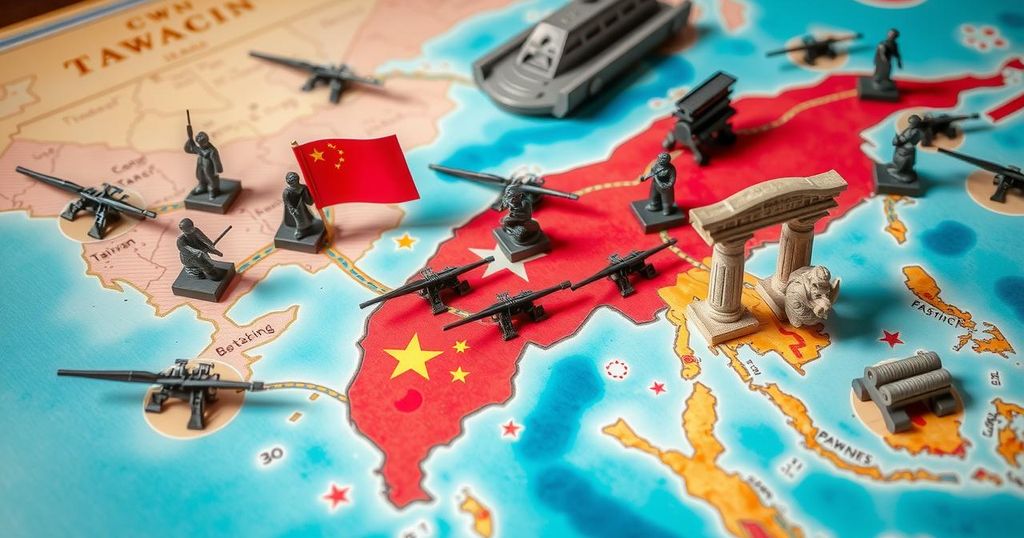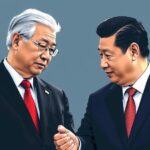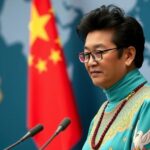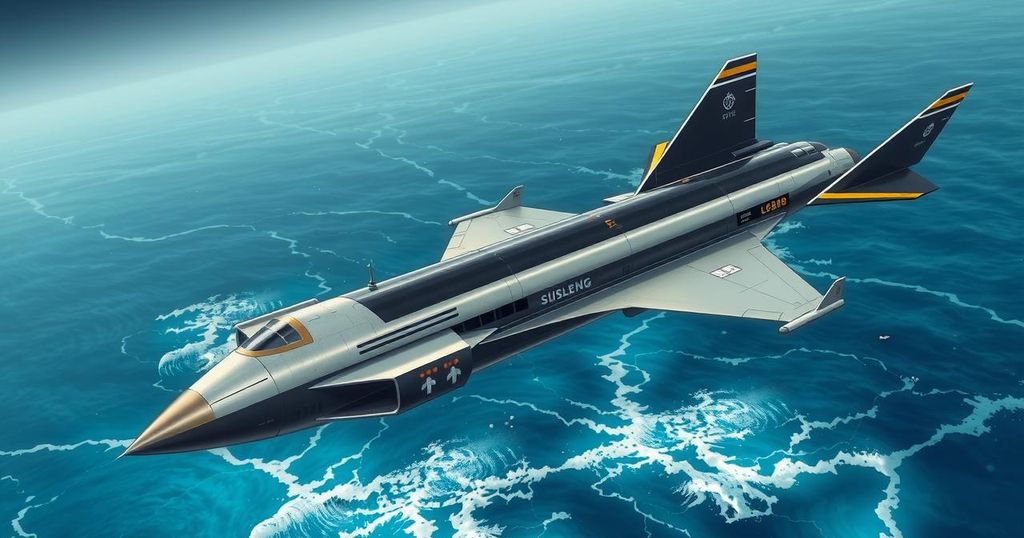Innovative Board Game “2045” Aims to Prepare Taiwan for Potential Conflict with China
Mizo Games has developed the military-themed board game “2045,” which allows players to simulate defending Taiwan against a hypothetical Chinese invasion. Set for release in Taiwan and internationally, the game emphasizes competitive gameplay and fulfills an educational role amid rising military tensions. This trend reflects both societal engagement with national security issues and a broader cultural enthusiasm for integrating important themes into interactive formats.
The emergence of military-themed board games has sparked interest in Taiwan as a means to prepare for potential conflict with China. Mizo Games, a Taiwanese company, has introduced a new board game titled “2045,” which enables players to engage as military leaders, undercover agents, or civilian resistance fighters during a hypothetical Chinese invasion. Set to debut in Taiwan this month and in English later in January, the game simulates a 10-day period leading up to an attack, encouraging players to pursue both personal and collective objectives. Moreover, the game reflects a sense of urgency amid increasing military tensions and civil defense initiatives in Taiwan.
In the game, participants navigate various aspects of modern warfare, including cyberattacks and civil unrest, showcasing the complexity of defending the island. Chang Shao Lian, the founder of Mizo Games, expressed a desire for players to approach the game with a competitive spirit, emphasizing, “I want players to feel they want to win and think about what they will do to win.” The challenge of producing the game has been significant, particularly due to censorship issues that prohibit manufacturing within China, contrary to standard practices for Taiwanese board games.
Military-themed games have historical roots in social and political commentary, with predecessors such as Elizabeth Magie’s “The Landlord’s Game” designed to critique land monopolization. Paul Booth, a professor at DePaul University, noted that games like “2045” allow participants to engage with alternate histories and imagine future scenarios, fostering connection and involvement. The cultural trend toward gamifying critical issues continues, with war as a central theme linking both educational and recreational pursuits.
In parallel with the board game, Taiwan’s media landscape also features narratives addressing the threat of invasion, with upcoming shows such as “Zero Day” exploring the topic. The historical context of Taiwan-China relations reveals deep-rooted tensions stemming from the Chinese Civil War, with China maintaining a view of Taiwan as part of its territory and conducting military drills close to the island. Recently, Taiwan’s military conducted its own war game simulations to assess their preparedness for emergencies.
As tensions escalate, it is evident that the integration of board games into military preparation is becoming part of a broader strategy to engage the Taiwanese public and military in the reality of their geopolitical situation. The implications of such military-themed games represent a cultural shift towards active consideration of Taiwan’s national security within societal discourse.
The ongoing political and military tensions between Taiwan and China have prompted innovative responses from Taiwanese citizens and organizations. The historical backdrop includes the Chinese Civil War and subsequent claims of sovereignty by both parties. Recent military activities by China, including naval drills and missile tests, have heightened anxieties in Taiwan, prompting a surge in civil defense efforts and preparations. Within this context, the introduction of board games designed around themes of warfare offers a unique blend of entertainment and strategic preparedness, allowing individuals to engage with the complexities of potential real-world conflicts. This recent trend reflects not only entertainment but also educational aspects designed to foster awareness and readiness among civilians. As Mizo Games leads this initiative with their game “2045,” it aligns with a broader pattern of integrating gamification into serious societal issues, drawing from the historical precedent of games that reflect political and military themes.
The launch of Mizo Games’ “2045” signifies a novel intersection of entertainment and strategic military education amidst rising tensions between Taiwan and China. By allowing players to engage in simulated conflict scenarios, the game contributes to a broader dialogue regarding national security and readiness. As Taiwan confronts persistent military threats from China, the use of games as both a preparatory tool and a cultural commentary is likely to gain traction in both civilian and military spheres. Ultimately, this development underscores the creative approaches that societies may adopt to navigate increasingly complex geopolitical landscapes.
Original Source: www.aljazeera.com







Post Comment